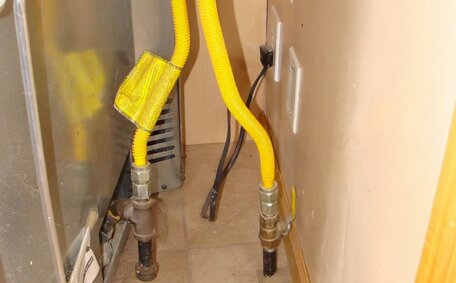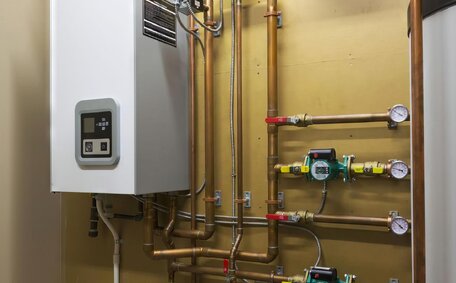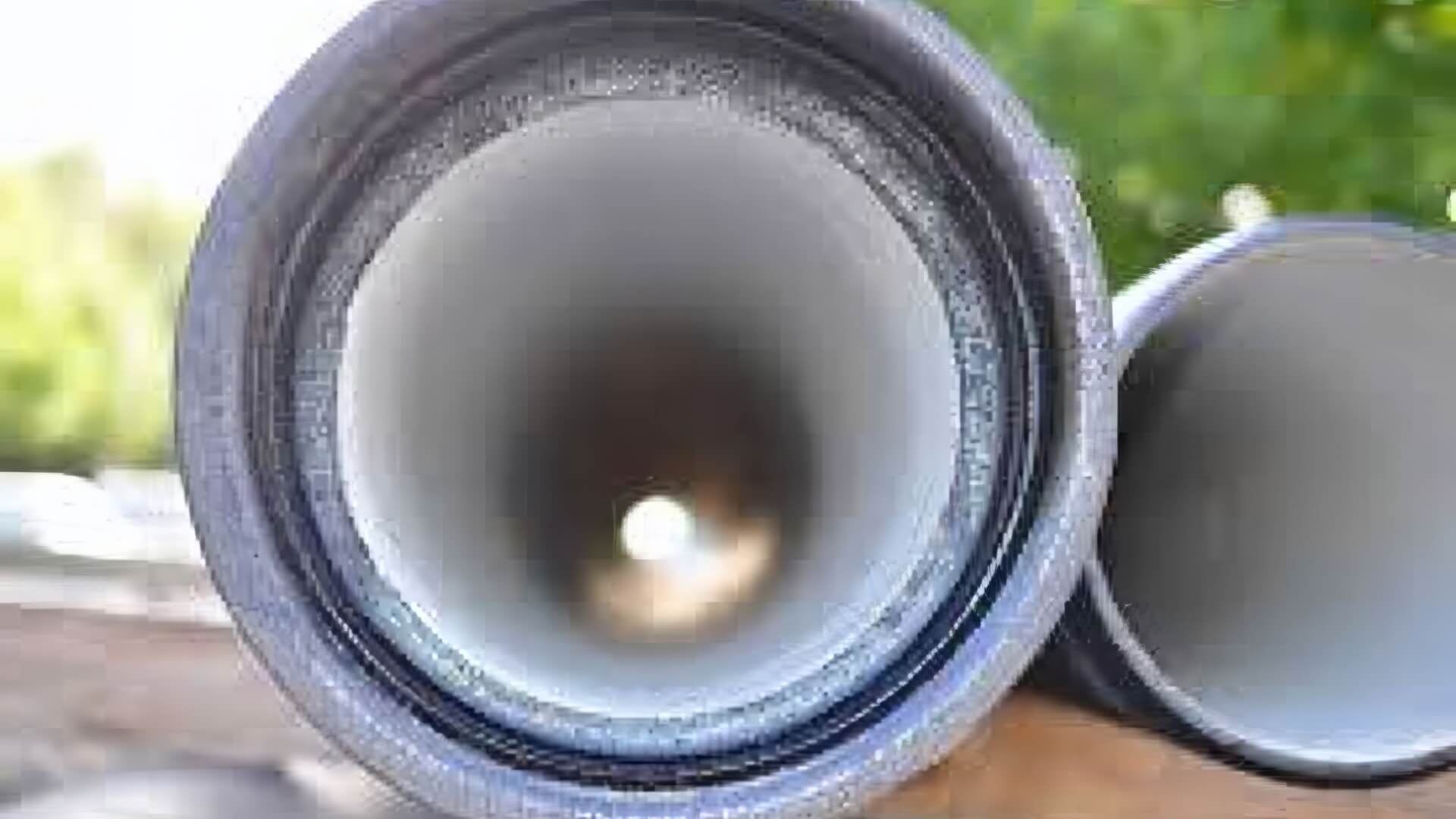
Keep Updated on Gas Appliance Recalls
Consumers should maintain awareness of current gas appliance recalls and safety alerts to prevent injuries. Check recall lists regularly to protect your home and family.
Read MoreCalcium accumulates in pipes from 'hard water’, which is rich in minerals such as calcium, magnesium, and potassium. A blocked drain can result from scale deposits formed by these minerals accumulating along the inside walls of pipes. This usually occurs gradually, with deposits forming more frequently in pipes where heated water accelerates mineral precipitation.
There are a few key factors that contribute to calcium buildup in pipes:
Unchecked, calcium can progressively clog pipes, obstructing water flow. Hard water causes buildup that can lead to substantial plumbing problems, such as leaks, bursts, and lowered water pressure, especially if not addressed over time.
Untreated calcium buildup can cause several issues:
Our professional emergency plumbing and blocked drains cleaning services offered here in Werrington can address your blocked pipes might face due to calcium buildup issues. We use high-pressure water methods like a water jetter to clear blocked pipes before they result in costly damages.
Various methods exist on how to remove calcium buildup from pipes, each with its own level of effectiveness:
Acidic cleaners can dissolve mineral buildup when poured down the drain. Applying these chemicals into your sink or piping system can help dissolve these deposits. Caustic cleaners, while effective, are sometimes undermined by hard water and pose safety risks.
A popular home remedy is to pour boiling water down your drain followed by a mixture of baking soda vinegar and lemon juice, optimising the fizzy chemical reaction that eats away at scale inside pipes.
Pour the vinegar and baking soda mixture down the drain and allow it to work for several hours. While less harsh than commercial cleaners, this DIY approach can temporarily alleviate clogs, improved by the fizzing reaction of the soda vinegar mix; however, using high-pressure water is crucial for effectively addressing hard water buildup.
Professional plumbers employ hydro jetting, using truck-mounted equipment with powerful water jets, to clear sewer drains and eliminate calcium deposits right down to the pipe walls. Hydro jetting clears clogs effectively but often necessitates excavation.
The limitations around these conventional methods demonstrate the clear benefits of modern pipe relining for handling calcium blockages without major destruction to your plumbing system.
Pipe relining, a trenchless repair technique, effectively resolves calcium issues without excavation. This method coats the pipe interior with an epoxy resin liner, forming a 'pipe within a pipe’.
The process starts with a CCTV inspection to identify any blockages or corrosion, ensuring the procedure causes minimal disturbance. If you detect any signs of a blocked drain, our custom-sized fibreglass liner with UV light-cured epoxy resin, inserted into the existing pipe, can fix the problem.
It hardens into a smooth, protective barrier that seals any cracks and gaps, restoring water capacity flow and preventing severe blockages.
Pipe relining can eliminate calcium buildup and address other issues in various pipe materials, including cast iron and clay. Key benefits over traditional pipe replacement include:
Our Werrington-based plumbing services provide advanced, non-destructive solutions for calcium blockages. We can also handle other issues such as tree roots invasions, fractured drains, and sewer stormwater complications.
Pipe relining excels in both removing existing deposits and preventing future buildup. Inserting a smooth, epoxy resin liner into the old pipe effectively creates a new inner surface for water to flow through.
This liner seals cracks and gaps that minerals would normally adhere to, ensuring nothing seeps through your restored pipes. The custom-fitted barrier is also corrosion and abrasion resistant, meaning calcium has no way of adhering as it did on ageing iron, steel or concrete pipes.
Any protruding deposits get filed down and covered during installation, automatically improving flow rates. The liner is designed to last 50+ years, so calcium accumulation will not be an issue again in the lifetime of the pipes.
In summary, pipe relining tackles calcium buildup through:
Pipe relining is a comprehensive, long-term fix for calcium blockages.
Pipe relining boasts numerous advantages for managing calcium buildup:
Potential downsides to consider include:
When performed by qualified technicians like our blueline IAPMO-certified team here at Werrington Plumbing, pipe relining negates calcium buildup and restores flow rates for the long run. With custom solutions for residential and commercial sites, we make this innovative plumbing repair method a smooth, effective process.
There are several effective ways to help prevent calcium buildup after pipe relining or other plumbing repairs:
A water softener, installed in your plumbing, removes minerals like calcium through ion exchange. This ensures only soft water flows into your pipes, forestalling the calcium buildup your pipes would otherwise suffer from. Models certified to NSF/ANSI Standard 44 are recommended for optimal performance.
Replacing old pipes with new materials like crosslinked polyethylene (PEX) or chlorinated polyvinyl chloride (CPVC) that resist mineral adhesion can prevent recurrence of calcium deposits. Consult a licenced plumber with electrical plumbing expertise who can install water pipes of the best types for your home or business.
Letting taps run for a few minutes weekly and avoiding stagnant water minimises mineral precipitation. Manual maintenance like avoiding flushing oils and using a drain snake can prevent mineral buildup.
Our specialists proficiently remove calcium, using CCTV and hydro jetting to spot new deposits early on. Preventative maintenance keeps plumbing operating smoothly.
Get in touch with Werrington Plumbing for long-term solutions to prevent calcium scale. Being a family owned business with over 25 years serving the Werrington area, we have the experience to tailor the right prevention plan for your property’s needs.
Consumers should maintain awareness of current gas appliance recalls and safety alerts to prevent injuries. Check recall lists regularly to protect your home and family.
Read MoreHard water leaves mineral deposits in hot water heaters and systems, causing corrosion and limescale buildup. This reduces efficiency and leads to higher energy bills and repair costs over time. Installing a water softener protects hot water appliances by removing the minerals that cause scale.
Read MoreYes, pipes can be relined more than once if they become damaged again. Our pipe relining service uses epoxy resin to coat the inside of your existing pipes, repairing cracks and damage for over 50 years. As experts, we’ll have your pipes relined in just one day with no digging required.
Read MoreWerrington, 2747 NSW
We will call back as soon as possible.




